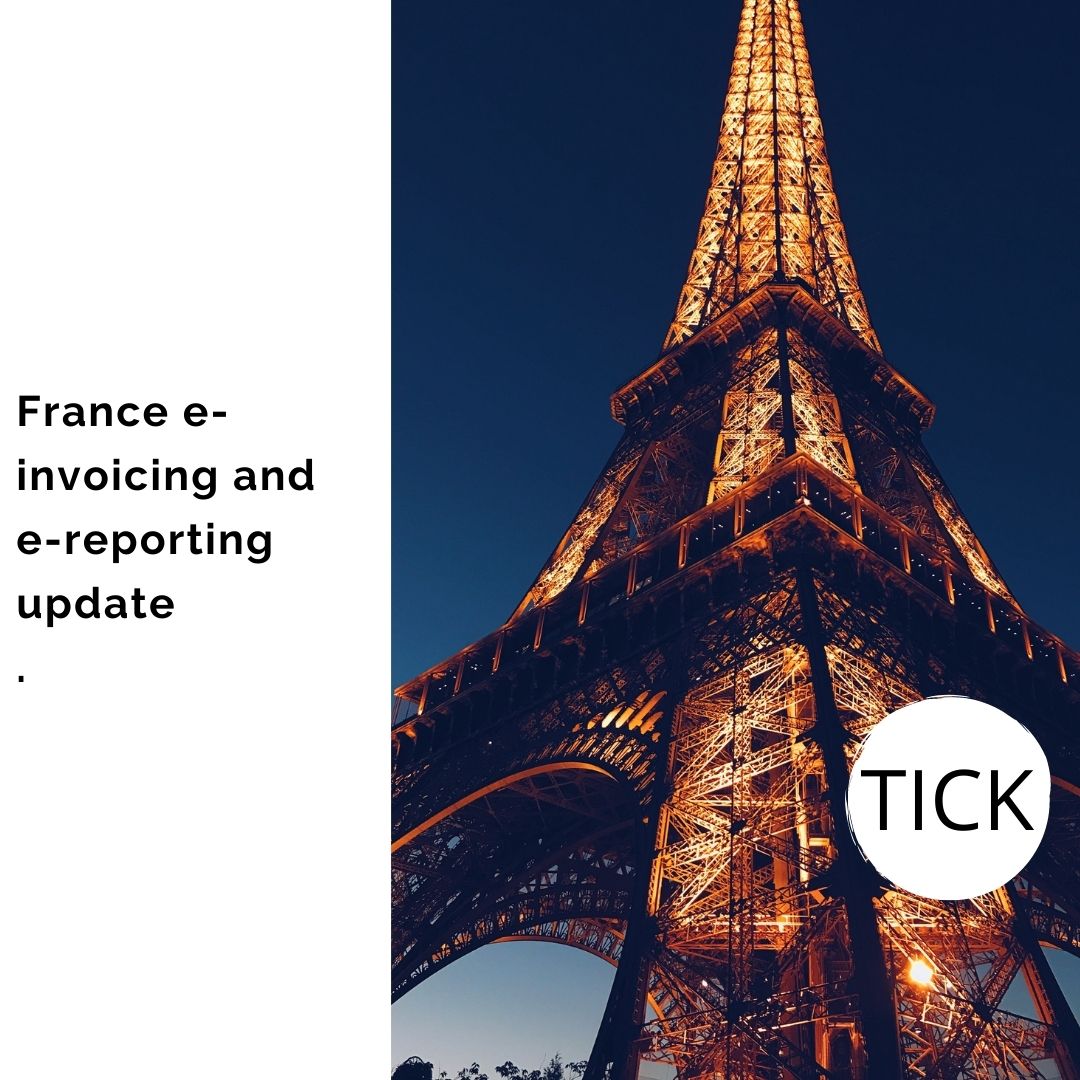Guidelines for small businesses to join e-invoicing and e-reporting before January 2026
The French General Directorate of Public Finance has confirmed the status of small enterprises willing to voluntarily start implementing French e-invoicing from July 2024, and cross-border sales) from 1 January 2026. Small businesses are classified based on the following criteria:- less than 250 employees; and
- not exceeding any of the following: turnover of EUR 50 million; or EUR 43 million of the balance sheet)
Requirements for voluntary e-invoicing by the mandatory deadline of 2026
Small businesses will be required to join the B2B e-invoicing scheme from 2026. However, they will be encouraged to join the scheme on a voluntary basis from the launch date in July 2024. The same is true for the new e-reporting requirement, although it would not be necessary to join the scheme at the same time. for e-reporting – they can only join e-invoicing.The tax authorities also confirmed that if a small entrepreneur voluntarily registers before 2026, he does not have to issue all invoices via the e-invoicing system. In some cases, they may still issue paper invoices.Finally, it is confirmed that regardless of whether or not the small company already has mandates, its customers are still required to accept e-invoices from July 1, 2024.French e-invoicing and e-reporting plans
France introduces real-time electronic B2B VAT invoices and B2C e-reporting in a 3-year phased roll-out, starting with larger taxpayers from July 1, 2024 to January 2026. This is an 18-month delay from the original launch plan on January 1, 2023 based on the B2G Chorus Pro platform.This will include B2B, with separate e-reporting for B2C and cross-border sales.Consultation on EU harmonization
EU VAT reforms in the digital age include a channel for harmonized digital reporting requirements (DRR) and continuous transaction control (CTC) by EU countries. This was due to the EU tax action plan proposed in 2020 for a fairer and more efficient EU tax system.Europe e-invoicing and live reporting
| Country | Date | Comments |
| EU e-invoice proposals | 2024 | Live transaction reporting proposal |
| Albania | Jan. 2021 | Authorized e-invoice software and pre-billing |
| Belgium | 2023 | Gradual introduction of B2B e-invoices |
| Bulgaria | 2023 | Public consultation on the e-invoice model before check-in |
| Finland | Apr. 2020 | The customer can request B2B e-invoices |
| France | July 2024 | E-invoice before billing |
| Germany | 2024 (?) | New government e-invoice “as soon as possible” to fight fraud |
| Greece | Oct. 2021 | E-invoice and e-books |
| Hungary | July 2018 | Live RTIR invoice reporting. No initial government check is required |
| Italy | Jan. 2019 | SdI e-invoicing in advance |
| Irland | TBC | Public consultations are underway |
| Latvia | Jan. 2025 | B2B e-invoices based on PEPPOL |
| Poland | Jan. 2023 | Voluntary January 2022; compulsory 2023. Government model of initial check-in |
| Portugal | July 2021 | Certified invoicing software for non-residents |
| Jan. 2023 | ATUD numbering on invoices | |
| Romania | 2022 | Implementation of e-invoicing RO |
| Russia | Jan. 2023 | Government e-invoicing in advance; full B2B 2023 |
| Serbia | May 2022 | Government e-invoicing in advance |
| Slovakia | Jan. 2023 | Government e-invoicing B2B and B2C advance |
| Slovenia | 2023 ? | E-SLOG B2B offer blocked |
| Spain 1 | July 2017 | SII Live Invoice and Accounting Reporting |
| Spain 2 | 2024 | Pre-billing e-invoices for large enterprises; complement to SII |
| Sweden | 2024? | A review of live digital reporting options has begun |
| Turkey | Jan 2014 | e-invoice e-Fatura and e-Arşiv |
| Great Britain | Apr 2022 | MTD for VAT extended to 1.1 million taxpayers |


